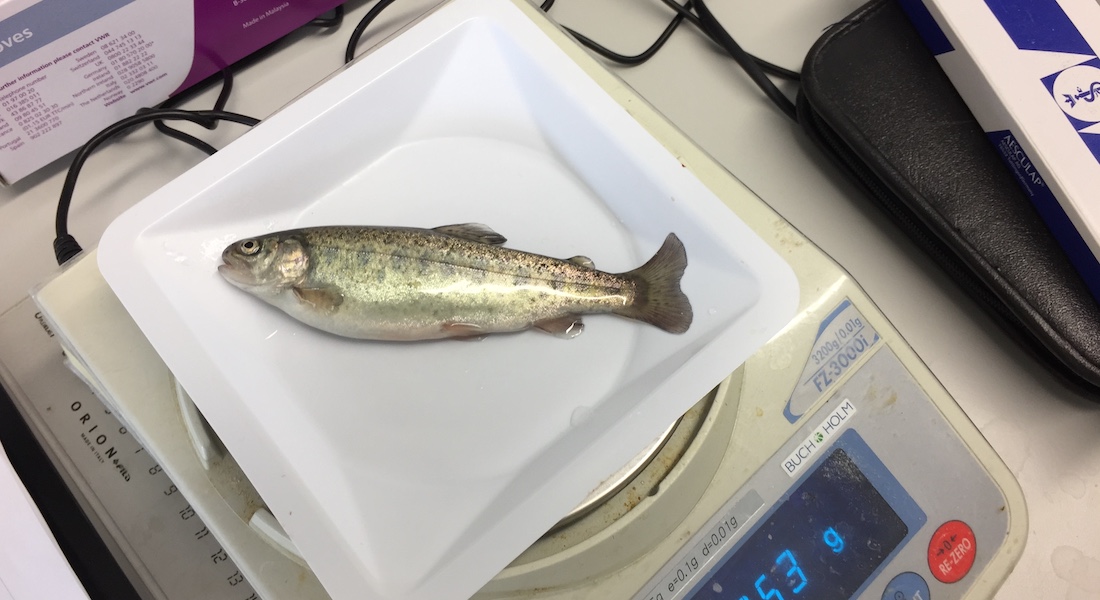Knowledge of gut microbiota increases our understanding of disease recovery in fish
A new study carried out by researchers at Center for Evolutionary Hologenomics and colleagues offers a more holistic view on host and microbiota signals in rainbow trout.

Gut microbiota play a pivotal role in regulating the host immune system. Hence great interest has arisen in the possibility of controlling fish health by modulating the gut microbiota.
"This study differs from previous research by incorporating host and microbiota signals in a more integrative manner. We were not only interested in how probiotics alone can affect microbiota, but also how the probiotic diet can affect the microbiota before and after a disease challenge with Yersinia ruckeri in rainbow trout," says PhD student and first author Jacob Agerbo Rasmussen.
Probiotics to strengthen disease resilience
Probiotics is one way for farmers to boost animal health and production. However, to optimise the use of probiotics to strengthen disease resilience and recovery we need a better understanding of the host–microbiota interactions after disease responses. This is what researchers from Center for Evolutionary Hologenomics and colleagues set out to investigate in a new study just published in Journal of Applied Microbiology.
"Our study reveals how the application of probiotics changes the microbiota before infection, but also that the probiotic-affected microbiota is highly similar before and after disease challenge, indicating a stabilising effect. Subsequently, we also found that the probiotic affects host immune related genes. These findings could be of importance to understand how to induce an efficient recovery post infection with a more stable gut microbiota. For the future we would need to figure out if the microbiota altered the probiotics directly or indirectly by affecting host immune related genes," says PhD student and first author Jacob Agerbo Rasmussen.
Read the article in Journal of Applied Microbiology here and watch the video abstract below.
Contact
PhD student Jacob Agerbo Rasmussen
